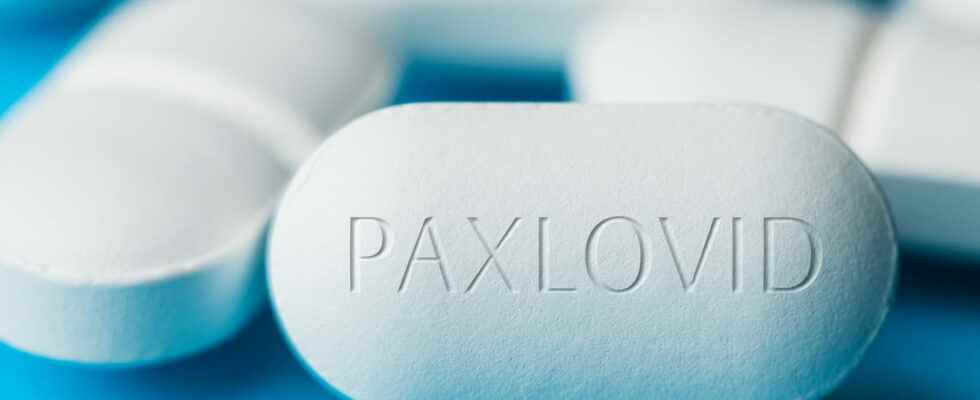Three years after the start of the Covid-19 pandemic, treatment protocols have stabilized. Paxlovid and Veklury are the only two drugs recommended by France’s Medicines Agency for severe cases.
Currently in France, several treatments are available for the care of people at high risk of a severe form of Covid-19 disease. “Treatment recommendations evolve according to the nature of the circulating variants” reminds theMedicines Agency February 8, 2023 in an information point on which treatments are still recommended and which ones should no longer be used. What treatments for benign forms of Covid? More serious ? Who is it for? Paxlovid ? THE monoclonal antibodies are they still recommended?
What are the drugs used in the event of Covid in 2023?
Taking into account theCovars opinion of December 16, 2022 And opinion of the AvATher group of the ANRS-MIE of January 16, 2023the ANSM recommends in February 2023:
► To treat Covid in non-oxygen-requiring patients at high risk of progression to a severe form of Covid-19:
- Paxlovid (nirmatrelvir PF-07321332 / ritonavir) as first-line;
- Veklury (remdesivir) as second-line treatment in the event of a formal contraindication to Paxlovid, and in the absence of a particular renal contraindication;
Monoclonal antibodies Evusheld and Ronapreve are not recommended in the current epidemic context. The place of Xevudy in this indication remains to be determined on the basis of an ongoing evaluation of its antiviral activity on the dominant sub-lines.
► In pre-exhibition: Ronapreve should no longer be used in this indication since the emergence of the Omicron variant. Evusheld is also no longer recommended given the level of circulation of the BQ.1.1 sub-lineage in the territory.
What is Paxlovid?
The pharmaceutical company Pfizer has developed antiviral treatment specially designed to be administered at the first signs of Covid infection. This is the drug called Paxlovid (nirmatrelvir/ritonavir) authorized in France in January 2022. The drug agency recalled in February 2023 the “significant risk of drug interactions with Paxlovid” and recommended to systematically consult the Paxlovid summary of product characteristicsas well as the recommendations of the SFPT.
What are the treatments for Covid-19 at home?
Covid-19 patients presenting with simple or moderate form are supported in town with drugs such as paracetamol against fever and body aches for example.
► Paracetamol (Doliprane) allows reduce fever and calm any muscle aches. However, it has no antiviral properties. Note that it is recommended, for an adult, to do not consume more than three grams of paracetamol per day, not to exceed more than 1 gram per dose and to space the doses by at least 4 hours.
► In case of serious risk factors, the doctor can prescribe a pulse oximeter (or pulse oximeter) for enhanced monitoring at home. Exceptionally, a oxygen therapy can be set up at home patients with Covid-19 as part of a multi-professional first aid team in conjunction with a reference hospital team (pneumology, infectious diseases, critical care, etc.) and the SAMU.
What are monoclonal antibodies?
Monoclonal antibodies are treatments”manufactured in the laboratory specifically for block the Spyke protein, from antibodies from patients who have recovered” explains Mathieu Molimard. Three monoclonal antibodies were authorized in France during the Covid-19 epidemic: Evusheld (AstraZeneca), Ronapreve (Roche), Xevudy (GSK).
What are the treatments for long Covid?
Current treatments for a long form of Covid are essentially symptomatic:
- A healthy lifestyle (balanced diet, sufficient sleep, etc.) against fatigue
- Of the physiotherapy to set up a progressive and adapted resumption of activity according to the shortness of breath, to relearn how to breathe quietly in the event of hyperventilation.
- Consult an ENT doctor for olfactory rehabilitation in case of loss of smell.
- Do cognitive behavioral therapy (TCC) and if necessary psychiatric to better manage the psychological impact of the long Covid.
- No exclusion dietover-the-counter vitamins and supplements.
The HAS does not recommend either the approaches of alternative medicine (acupuncture, auriculotherapy, osteopathy, etc.), which have not been evaluated in this context.
Do antibiotics have any interest if you have the Covid?
Antibiotics work against bacteria, and only against bacteria. They are therefore totally ineffective to treat a Covid-19 infection, a viral disease and not a bacterial one. In November 2020, theWHO reminded that “coronavirus disease 2019 (COVID-19) is caused by a virus, not by bacteria. The virus that causes COVID-19 belongs to the Coronaviridae family. Antibiotics do not work against viruses.(…) SARS-Cov-2 is a virus and therefore antibiotics should not be used as a means of prevention or treatment. However, if you are hospitalized with COVID-19, you may receive antibiotics as bacterial co-infection is possible.”
Sources:
Update on the use of treatments against Covid-19. ANSM, updated on February 9, 2023.
Covid-19: Update on the care of outpatients. January 18, 2022. HAS
Interview by Mathieu Mollimard in October 2021.
